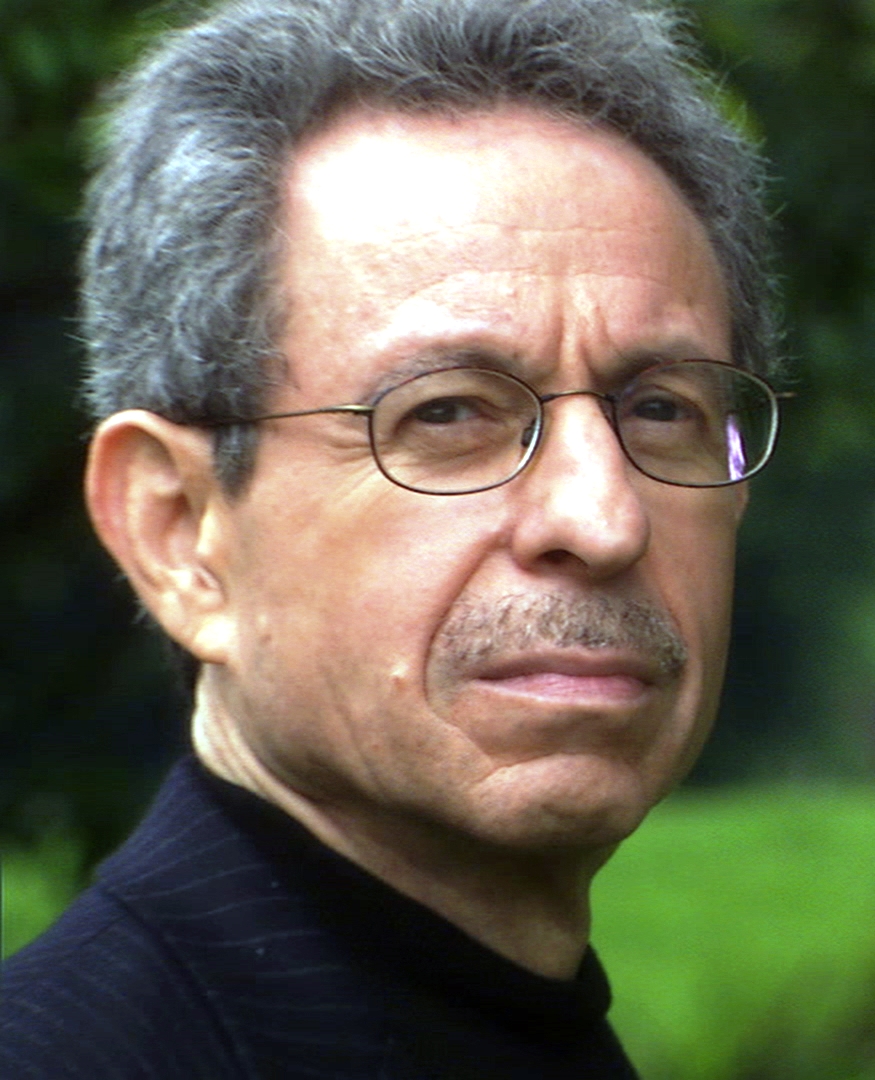Does Your 'Self' Have a Soul?


Robert Lawrence Kuhn is the creator, writer and host of "Closer to Truth," a public television series and online resource that features the world's leading thinkers exploring humanity's deepest questions. This essay, the third of a four-part series on the Self, is based on "Closer to Truth" episodes and videos, produced and directed by Peter Getzels and streamed at closertotruth.com. Kuhn contributed it to Live Science's Expert Voices.
Below is Part III of a four-part series on the self. In Part I: Is Your 'Self' Just an Illusion?; and Part II: Can Your 'Self' Survive Death?
Most religions claim that there is more to the self than the brain. The traditional understanding is that human sentience and selfhood are conveyed via some kind of nonphysical substance, often called a "soul."
Though the soul is far out of favor with most contemporary philosophers, a few distinguished scholars defend and scrutinize the idea of a self that is founded on the soul and extends beyond the physical and could survive after the body dies. Even so, those scholars diverge on the concept, with some saying the soul is crucial to personal identity, though perhaps it cannot be separated from the physical body. Another idea is that the soul is an "information-bearing pattern" that connects the living self with the afterlife person who lives forever. And still another scholar suggests the soul, as it were, is a sort of existential unity of successive stages of the brain over a person's lifetime. [10 Phenomena That Science Can't Explain]
The essence of the soul
Distinguished Oxford philosopher of religion Richard Swinburne, author of "Mind, Brain, and Free Will" (Oxford University Press, 2013), defends the soul with sophistication and vigor.
"If you want to tell the whole story of the world, you must say what objects there are in the world, what substances there are, and what properties they have at different times," Swinburne said on "Closer to Truth." "Of course, that will include all the physical objects, all the tables and chairs and planets and atoms. But, of course, that won't tell the whole story. You will also have to tell the story of conscious life, which is associated with each body."
[All quotes are derived from "Closer to Truth."]
Get the world’s most fascinating discoveries delivered straight to your inbox.
Swinburne asserted that in order to tell "the full story of the world," one must "pick out subjects of experience — not just by the experiences they have, not just by the physical bodies with which they are associated" but also with "separate mental entities for which the natural word is 'soul'… If you can't bring 'soul' into the account of the world, you will not tell the full story of the world, because you will not tell who has which conscious life."
"If the only things were physical objects, including bodies and brains, we would not be able to distinguish a case where you have the body which is presently yours and I have the body which is presently mine, from the case where you have the body which is presently mine and I have the body which is presently yours," he added.
"If physical properties and mental properties were just properties of bodies there would be no difference between these cases;" but because there are obvious differences between "you" and "me," Swinburne claimed that "there must be another essential part of me which goes where I go, and this we can call my 'soul.'"
Swinburne stressed that his argument for the existence of a soul — that "souls constitute personal identity and the continued existence of me will consist in the continued existence of my soul" — "is quite apart from what might happen in the world to come." In other words, Swinburne said that his claim about the reality of a nonphysical soul does not depend on theological revelation or his own religious belief.
As to the relationship between the body and the soul, Swinburne is ambivalent. "Maybe, of course, a soul can't function on its own," he said. "Maybe it can only function when associated with a body. In that case, my continued existence would consist in it being joined to a body again, perhaps an entirely new body. I think a soul could exist on its own, but not a great deal turns on that." A body is required, Swinburne said, because "for us to interact with others, to recognize others, we need different public characteristics." [The 10 Biggest Mysteries of the Mind]
I asked Swinburne to speculate on the essence or composition of such a soul. Is it a differentiated substance? What's to prevent your soul from getting mixed up with my soul?
"The difference between souls is ultimate, unanalyzable by anything else," Swinburne responded. "A soul has no extension. It is an 'immaterial particular', to use an old-fashioned philosophical term. It does, of course, have characteristics, properties. It has thoughts, feelings, attitudes, and so on. But the way we distinguish in practice between souls is in terms of the bodies with which they are associated because the difference between your soul and my soul, being ultimate, does not consist in their relations to our respective bodies. There is of course nothing paradoxical about the difference between souls being unanalyzable, because some differences must be ultimate; if you can analyze 'a' by 'b' and 'b' by 'c' and so on, you eventually get to things which you can't analyze, and the differences between human souls in my view are one of those things." This is why the only way souls can have a public presence is through their attachment to bodies.
Afterlife of the soul
Physicist and Anglican priest John Polkinghorne gets to a similar religious result for the meaning and purpose of the self, but he achieves it via a different religious formulation. He agrees with fellow scientists that patterns of information carry the self, but as to what follows, he diverges dramatically.
Polkinghorne begins by asking, "Can you make credible understanding of a destiny beyond death for human beings?" Then, from his Christian theological perspective, he sets two equal and opposite requirements for the afterlife of a soul: continuity, in that the same person (the same self) must live after death, and discontinuity, in that the afterlife person (the afterlife self) must live on forever. [What Happens When You Die?]
How, then, Polkinghorne asked, can you have both continuity and discontinuity of the same person (the same self)? "The traditional answer has been the soul, often understood in Platonic terms — there's some sort of spiritual bit of us liberated at death that exists and carries on."
Citing the Hebrew scriptures and the New Testament, Polkinghorne said, "I think that's a mistake," adding, "We have psychosomatic unity. We're not 'apprentice angels'; we're embodied human beings. In fact, it's quite difficult to understand what's the carrier of continuity for a person in this life. Here am I, an aging, balding academic — what makes me the same person as the little boy with the shock of black hair in the school photograph of years ago? It's not atomic material continuity — the atoms in my body are totally different from the atoms in that schoolboy. It's not the atoms themselves, but the pattern in which those atoms are organized in some extraordinary, elaborate and complex sense. And I think that's what the human 'soul' is. It is the information-bearing pattern that is the real me."
At death, then, wouldn't that pattern decay with the body in which it resided?
"If I believe in the faithful God as I do, God will remember that pattern and will reconstitute that pattern in an act of resurrection," Polkinghorne said. "But that's not keeping me alive [after death and before a resurrection]. So if I am truly to live again, I have to be re-embodied, because that's what I am as a human being. That's the continuity side of things. The discontinuity is that I'm not made alive again in order to die again, so I must be embodied in some new form of matter. And it's perfectly coherent to believe that God can bring into being such a new form of matter." [8 Ways Religion Impacts Your Life]
To Swinburne, the idea of our afterlife existence existing in a renewed instantiation of the pattern of information that we had on Earth is problematic. "The trouble is not merely how could God, if God so chose, bring into [renewed] existence a being with a specific pattern of information, but rather that God could [therefore] bring into existence a few thousand such beings. But because only one of them could be me, a pattern of information provides no extra criterion for distinguishing which one that would be. And whatever the extra criterion is, it would have to be such that there [logically] could only be one instance of it at one time. And if we have such a criterion, then what need is there for the pattern of information to be the same as a previous pattern?"
Existential unity
Philosopher John Leslie, a professor emeritus at the University of Guelph in Canada, stated that robust selfhood may require a kind of "existential unity," a state "as found in wholes whose parts are incapable of separate existence." (In other words, they couldn't split apart from one another without changing their intrinsic natures.)
Leslie likens this existential unit to the holistic conscious experience of a painting or of several successive musical notes heard together.
Though "existential," this unity of the self is real; it "may depend on the fact that particular states of a brain, and also successive states of that brain and their linkages over a lifetime, possess this existential unity." He distinguished "existential unity" from "mere unity of integration, like the unity of the parts of a working machine or of a well-disciplined army."
How could such existential unity be achieved? The brain could be a kind of quantum computer. "Quantum wholes are ones whose parts don't exist separately," Leslie said. "And in the brain, there is a unity-of-existence such as is had by quantum computers, but not by digital computers," he explained. Even so, he added, "the brain carrying out quantum computing isn't essential to my position, and something other than quantum unity could be involved."
Leslie drew an analogy with a historical understanding of souls. "When the parts of a soul were viewed as existentially unified at each particular instant," he said, "it wasn't thought that God, when manufacturing unified souls, had to do some kind of special mixing involving many separate steps. It was believed simply that souls had, from the moment of their creation by God, the property of being complex yet existentially unified. Many distinguishable elements of such complexity were present when a soul had a thought or an experience, but still, a soul remained existentially unified at each instant and remained the very same soul at successive instants."
To conclude this four-part series on the self, I gather, categorize and assess all putative explanations for your "self."
Next in this four-part series: What Is a 'Self'? Here Are All the Possibilities
Kuhn is co-editor, with John Leslie, of "The Mystery of Existence: Why Is There Anything at All?" (Wiley-Blackwell, 2013). Read more of Kuhn's essays on Kuhn's Space.com page.






